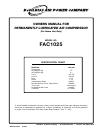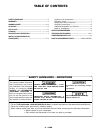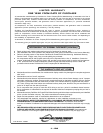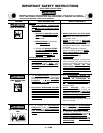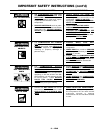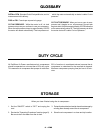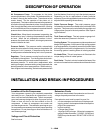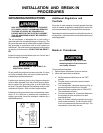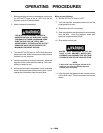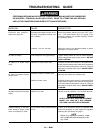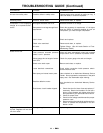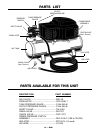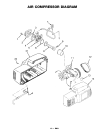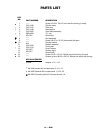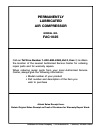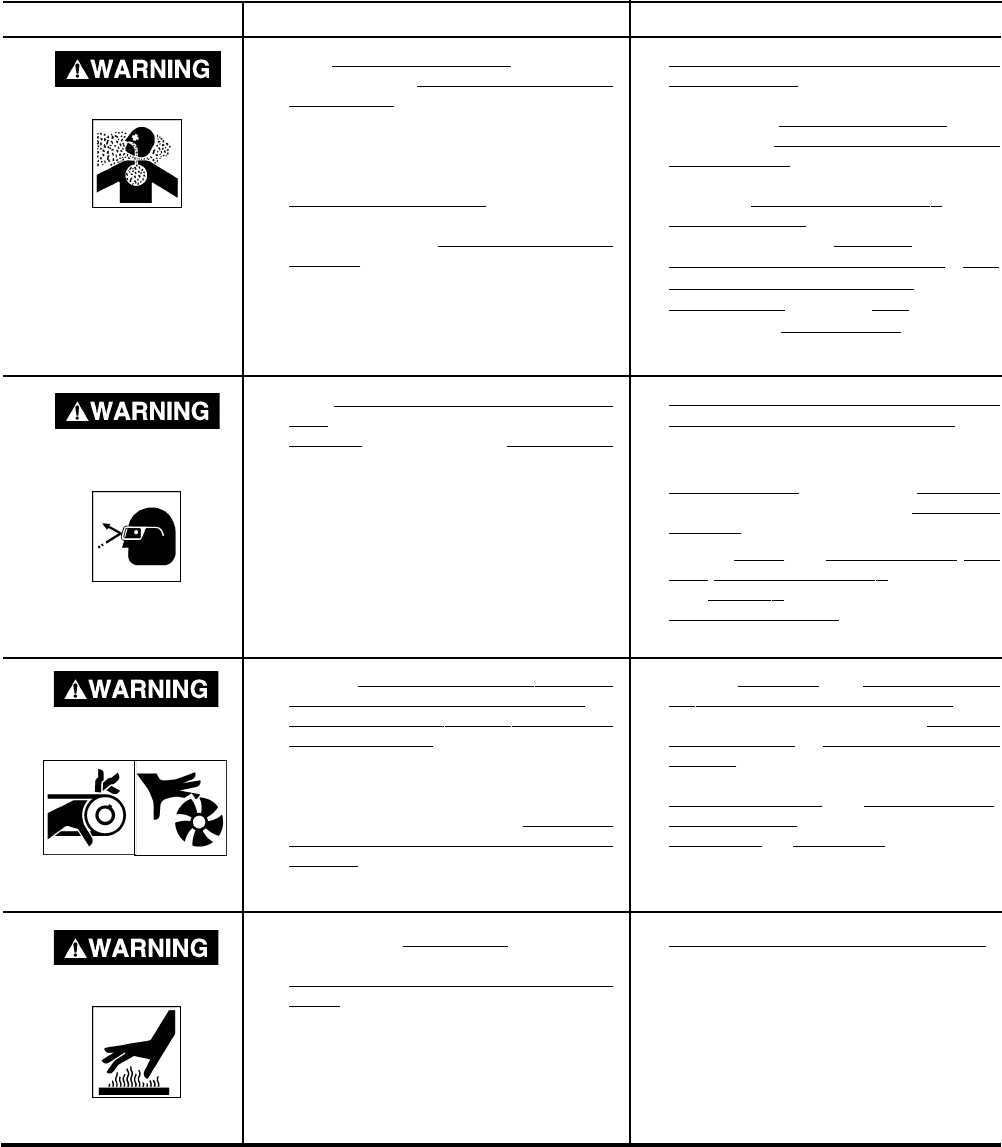
5 — ENG
• The COMPRESSED AIR from your
compressor
IS NOT SAFE FOR
BREATHING! The air stream may contain
carbon monoxide or other toxic vapors,
or particles from the tank or other
components.
•
SPRAYED MATERIALS such as paint,
paint solvents, paint remover, insecticides,
weed killers, etc.,
CONTAIN HARMFUL
VAPORS and poisons.
•The
COMPRESSED AIR STREAM
CAN cause soft tissue damage, and can
PROPEL dirt, chips, loose PARTICLES
and small objects at high speed,
resulting in property damage or
personal injury.
•The
COMPRESSOR CYCLES
AUTOMATICALLY WHEN the
PRESSURE SWITCH IS IN THE ON/
AUTO POSITION! If you attempt repair
or maintenance while the compressor is
operating, or with the switch in the ON/
AUTO position, you can expose yourself
to moving parts. These
MOVING
PARTS CAN CAUSE SERIOUS
INJURY or damage if they come into
contact with you or your clothing.
•Contact with
HOT PARTS such as the
compressor head or outlet tubes
COULD RESULT IN A SERIOUS SKIN
BURN.
•
NEVER INHALE AIR FROM THE
COMPRESSOR, either directly or from a
breathing device connected to the
compressor.
WORK IN AN AREA
equipped
WITH GOOD CROSS-
VENTILATION.
• Read and
FOLLOW THE SAFETY
INSTRUCTIONS provided on the label
or safety data sheet
FOR THE
MATERIAL YOU ARE SPRAYING. USE
A NIOSH/MSHA APPROVED
RESPIRATOR designed FOR use with
your specific APPLICATION.
• ALWAYS WEAR ANSI Z87.1
APPROVED SAFETY GLASSES with
side shields when using the
compressor.
•
NEVER POINT any nozzle or SPRAYER
toward any part of the body or
AT OTHER
PEOPLE or animals.
•Always
TURN the COMPRESSOR OFF
AND BLEED PRESSURE from the air
line
BEFORE attempting maintenance,
ATTACHING TOOLS or accessories.
•Always
UNPLUG the COMPRESSOR
AND RELEASE AIR PRESSURE from
the tank and any attachments
BEFORE
ATTEMPTING any MAINTENANCE OR
REPAIR.
•
NEVER OPERATE the COMPRESSOR
WITH GUARDS or covers which are
DAMAGED or REMOVED.
•
NEVER TOUCH HOT COMPONENTS
during or immediately after operation of
the compressor. Do not reach around
protective shrouds or attempt
maintenance until unit has been allowed
to cool.
RISK TO BREATHING
RISK FROM FLYING
OBJECTS
RISK FROM MOVING
PARTS
RISK OF BURN
HAZARD
WHAT CAN HAPPEN HOW TO PREVENT IT
PCOM1096
IMPORTANT SAFETY INSTRUCTIONS (cont’d)



